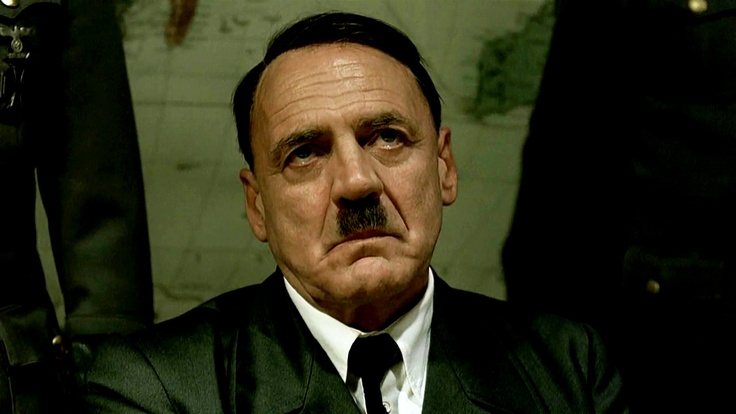
The use of history in cinema is still an uneven playing field. Filmmakers are storytellers, and a good storyteller never lets the truth get in the way of an entertaining story. Much to the dismay of many historians, the facts in historically-based films are often distorted to accommodate artistic license and ensure commercial success. And let’s face it: these films are not intended as documentaries.
However, in an age where the lives of historical figures are well-documented – and access to this information is readily available to the average internet user – there are higher expectations for filmmakers to adhere to the facts. This creates quite the challenge for both screenwriters and directors who must weave both truth and fiction into a coherent and fulfilling story, but it also presents an even tougher challenge for actors.
As audience members, our first (and perhaps deepest) connection with the film is the way in which the actor embodies his/her character; how they look, move, sound, behave and react to their historical setting. In some cases, the success of the film hinges on the performance alone.
When utilising the finest techniques of the craft, an actor can closely resemble the person they are portraying and truly capture their spirit. Below is a list of ten uncanny portrayals of an historical individual on the big screen. Here, the performances of these thespians successfully compare to the primary evidence and documentary footage of their real-life counterparts – warts and all.
In order to offer effective comparisons, the list only focuses on representations of persons who lived in either the 20th or 21st Century.
10. Meryl Streep (Margaret Thatcher) in The Iron Lady (Phyllida Lloyd, 2011)
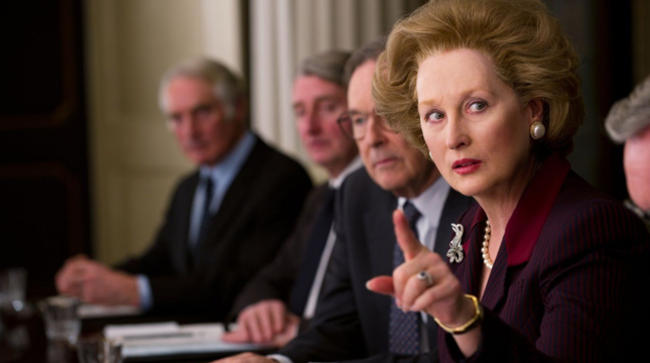
The longest serving Prime Minister in British history, Margaret Thatcher was definitely a bold – albeit controversial – leader. In order to gain an understanding of her legacy, one only needs to watch the polarizing reactions throughout the United Kingdom to the announcement of her death in 2013. Thatcher’s time in office was marked by social unrest due to high levels of unemployment, but she remained unflinching towards many of her economic policies. And let’s not forget the Falklands…
So it was fitting that the former Prime Minister’s portrayal on the big screen was given to an actress who equally commands the attention and respect of the audience: Meryl Streep. Although The Iron Lady opened in 2011 to a modest box office return and lukewarm reviews from critics, Streep’s performance was widely acclaimed and considered to be the finest moment of her acting career; winning her a third Academy Award in the process.
The film explores three distinct stages in Thatcher’s life: her struggle to break into the elitist, male dominated Tory Party; her time as a formidable leader of the nation; and her downward spiral from dementia in her later years.
Streep masters each incarnation perfectly; adopting her ironclad stare, her domineering march, and of course her characteristic shrill that often echoed across the cabinet table and into the parliament chambers. After one viewing, it is easy to imagine why they dubbed Thatcher the ‘Iron Lady.’
9. Ian McKellen (James Whale) in Gods and Monsters (Bill Condon, 1998).
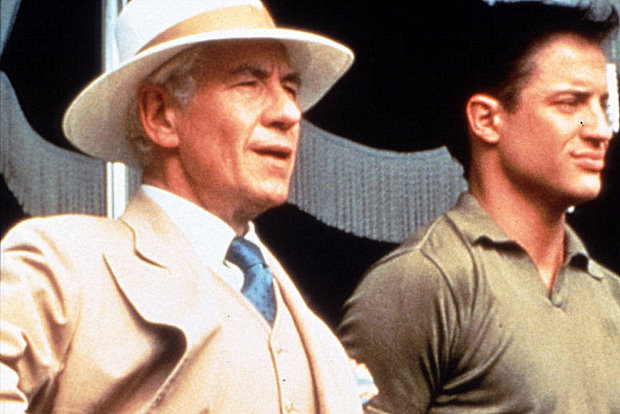
There is nothing Hollywood loves more than a biographical film depicting the life and career of one of its own. James Whale is best remembered in cinema for his classic horror films of the 1930s. He was also regarded as quite a controversial player in the industry – being one of the first filmmakers to be openly gay throughout his entire career. Who else could portray such a colourful character but one of the world’s proudest and openly gay thespians: Ian McKellen.
McKellen is a man who can take any script and transform it into the work of Shakespeare, and his performance in Gods and Monsters is certainly no exception. The actor breathes life into Whale’s tragic last days leading up to his suspicious death in 1957. The character that McKellen paints for us on screen is a fragile echo of a once great visionary, tormented by the horrific memories of his days fighting in the First World War.
A truly mesmerising and heart-breaking performance, McKellen draws from his own struggles in overcoming discrimination to highlight James Whale’s experience as an outcast.
8. Geoffrey Rush (David Helfgott) in Shine (Scott Hicks, 1996)
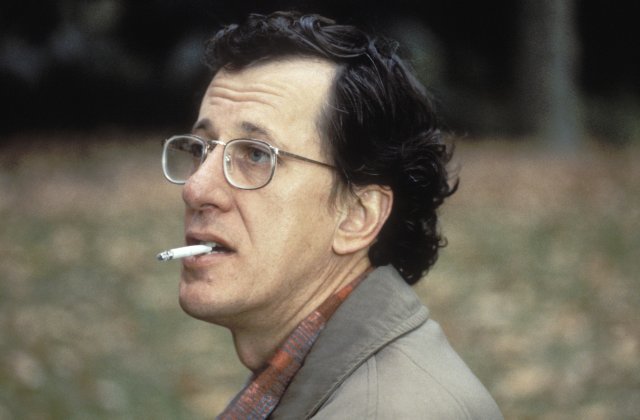
When Shine opened in cinemas in 1996, there was one question on everyone’s minds: who the hell was Geoffrey Rush, and where did he come from? The 43-year-old Australian cracked into the film industry later than most actors, but his Academy Award-winning role as the acclaimed pianist David Helfgott was an extraordinary debut.
Scott Hicks’ biographical drama illustrates the hardships Helfgott faced throughout his formative years as a child prodigy and aspiring musician. The pressures he placed on himself and his strained relationship with his overbearing father ultimately lead to a nervous breakdown. After enduring electric shock therapy, Helfgott spent time in a mental institution recovering from schizoaffective disorder.
Rush handles the character’s mental instabilities with subtlety and grace. He even resumed piano lessons from his childhood so that the director did not have to rely on a hand double throughout the film.
One of the actor’s most memorable scenes is in the film’s opening, where a rain soaked Helfgott stumbles into a restaurant with a cigarette drooping from his naïve grin. What follows is a frantic and yet tragic performance of giggling and rambling, as the eccentric Helfgott is unable to compose himself in front of the restaurant staff.
7. Helen Mirren (Queen Elizabeth II) in The Queen (Stephen Frears, 2006)
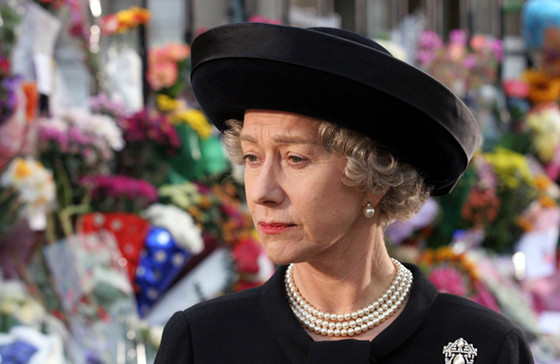
One of Europe’s oldest royal families, the House of Windsor is a predominant icon of British history and culture – not to mention a key tourist attraction for the United Kingdom. Public opinion for Queen Elizabeth II has generally been positive throughout recent years. However, that was not the case in 1997 when both the Queen and the rest of the Royal Family refused to participate in the world’s outpouring of grief over the tragic loss of Princess Diana.
The Queen focuses on the critical attitudes of both the media and the public towards the monarchy, as well as the rise in popularity of newly elected Prime Minister Tony Blair (charismatically portrayed by Michael Sheen). Ironically, the film was released at a time when public support for Blair had begun to fade and the monarchy was slowly regaining the respect of the people.
Helen Mirren is able to humanise the detached persona of Elizabeth II, providing an often overlooked perspective of a woman who must manufacture her feelings to meet the expectations of the people. Mirren approaches the character as both a leader and a mother – one who struggles to keep both her nation and her family from falling apart. The performance earned Mirren widespread praise, an Academy Award, and a dinner invitation from the Queen herself.
6. Ben Kingsley (Mahatma Gandhi) in Gandhi (Richard Attenborough, 1982)
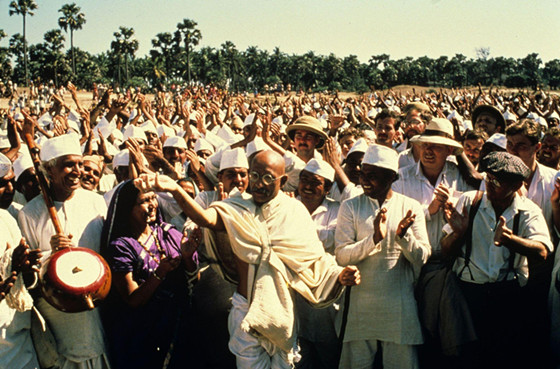
The profound teachings of Mohandas K. Gandhi continue to have tremendous effect on modern society. The champion of non-violent protest and non-cooperation sought to achieve total independence for India from the British Empire. His tactics would later inspire some of history’s greatest civil rights leaders and influence many freedom movements around the world. Casting such a prominent historical figure would prove to be quite the challenge for the filmmakers.
It is difficult to imagine anyone but Ben Kingsley playing Gandhi. It’s even more difficult to believe that Star Wars veteran Alec Guinness was originally considered for the role. Kingsley delivers a flawless representation of Gandhi’s humble nature, determination and remarkable spirit. At times it is easy to confuse the actor for the ‘Great Soul’ himself.